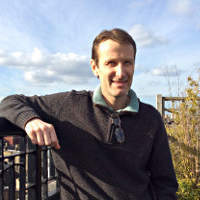Throughout his letter to the Corinthians Paul emphasises his poverty and in tonight’s reading we saw an example – “we are poorly clothed and beaten and homeless” he says. Elsewhere in Paul’s letters we read “I have learnt to be content with whatever I have. I know what it is to have little, and I know what it is to have plenty” he says. It appears then that Paul had a prosperous upbringing and that he felt his poverty keenly but managed to live with it.
Elsewhere though we can see a rather different attitude to poverty. St Francis for example referred to it as Holy Poverty and indeed it is one of the three obligations of religious life along with chastity and obedience. Francis was also from a wealthy background but embraced poverty wholeheartedly. Isn’t that rather distasteful at best if not serious warped?
In the face of cost-of-living crisis poverty is certainly an escalating concern in this country and around the world. Almost one third of children in the UK, around 4 million, live in poverty (defined as living in a household where household income if 60% or more below the national median). One in seven households lives in food insecurity assessed to be unable to afford or have access to food for a healthy diet.
Professor Michael Marmot, whose work provides an analysis of the impact of social determinants on health, evidences growing inequality in this country over the past decade. These trends have been exacerbated during the Covid pandemic and most recently the cost-of-living crisis as the effects of inflation hit food and energy prices in particular. As a result, life expectancy, which had been on an improving trajectory for many years, has stalled, and in the most deprived communities in our country has begun to reverse.
Poverty is seriously bad for your health. As you may know I work in public health. In the borough where I work there is gap in life expectancy between the most affluent and deprived areas of more than a decade and even greater when we look at healthy life expectancy (the period of our lives that we live free of health problems). Globally we perform very poorly on these measures. Amongst wealthy nations only the United States is consistency worst.
It’s important then I think, if we’re going to discuss poverty, that we don’t overlook the human hardship it causes in our country and indeed the wider world where impacts are even more stark. Biblical, and therefore, religious poverty is not about an extreme lack of resource that can make life impossible. The joy of the poverty does not lie in having nothing but rather in finding everything in God. Jacapone da Todi the 13th century Franciscan poet wrote – poverty, deepest wisdom, you are slave to nothing, and in your detachment you possess all things. To have contempt for things is to possess them without risk; they cannot block the path to perfection. The man who desires possessions is himself possessed having sold himself to the things he loves… God does not dwell in the heart that is confined, and a heart is only as big as the love it holds: in the great heart of poverty God has room to dwell.
During the sermon on the mount Jesus said – where your treasure is there your heart will be also. As John Francis Friendship, an Anglican Priest who was formerly an Franciscan brother notes, the appeal to material possessions can imprison and blind us to our need for God. The embrace of religious poverty, he says, frees the heart to be filled by God and points to the ultimate absurdity of possessions because, at some point, they’ll all have to go – house, belongings, people, and where then is our treasure?
There is a world of difference between chosen poverty and enforced poverty although I think is fair to suggest that voluntary poverty has sometimes been embraced rather too forcefully in the church’s history – St Francis himself repented of how he had failed to look after himself. The Third order of St Francis, open to anyone unable to pursue the religious life but wanting to be directed by Franciscan life, provides a reworking of the religious obligations in a helpful way. It focuses on simplicity, on recognise what is essential in life, that our possessions are merely borrowed.
We are called to see the world from another perspective. Paul wrote “has not God made foolish the wisdom of the world”. Productivity, striving, consumption, and speed are some of the false Gods of our Western culture and they help to drive inequality and material poverty in the world. An embrace of simplicity is actually an antidote encouraging us to live simply so that others may simply live.
Amen.



